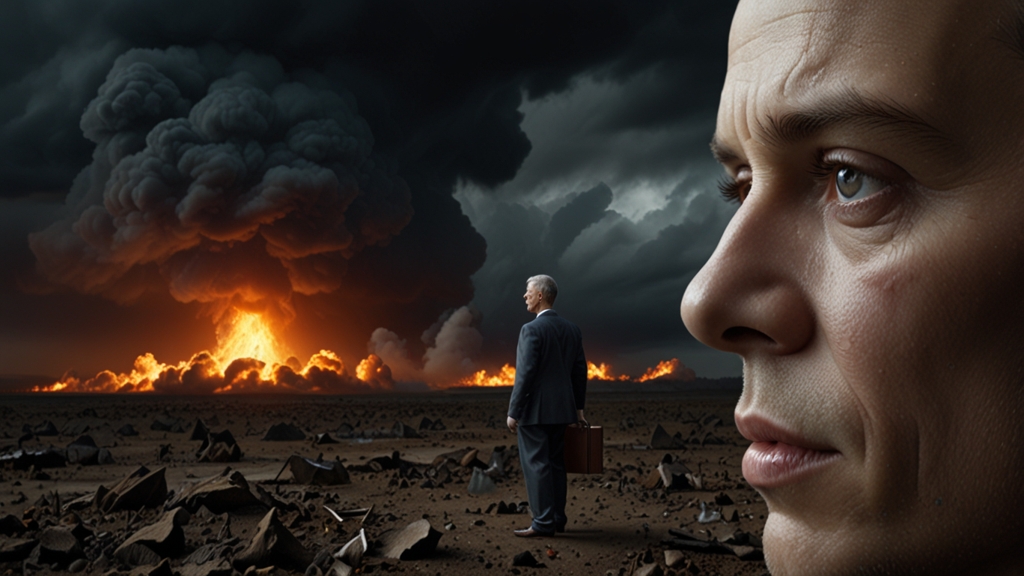Real Life Logic: Applying Rational Thought in Crisis Situations
In the shuffle of everyday life, crises emerge unexpectedly, demanding swift and decisive action. Whether it's a natural disaster, a financial meltdown, or a personal emergency, the ability to apply rational thought during such times can spell the difference between chaos and control. But how does one go about employing real-life logic in the heat of the moment? This article delves into the importance of rational thought in crisis situations and provides practical strategies to help you stay calm and composed.
Understanding Rational Thought
Rational thought is the process of making decisions based on reason, logic, and empirical evidence, rather than emotions or societal pressures. It's a critical skill in crisis management because it allows for clear-headed assessment and strategic problem-solving. The goal is to make the most informed decisions under stress, mitigating negative outcomes and steering towards a solution.
The Importance of Staying Calm
The first step in applying rational thought during a crisis is to remain calm. Panic clouds judgment and leads to hasty decisions. Adopting techniques such as deep breathing, mindfulness, or even taking a brief timeout to collect your thoughts can create a mental buffer between you and the crisis. This short pause, though seemingly trivial, provides valuable time to assess the situation more objectively.
"In every crisis, doubt or confusion, take the higher path - the path of compassion, courage, understanding, and love." - Amit Ray
Gathering Accurate Information
Once you've calmed down, the next step is to gather all available and accurate information. During a crisis, rumors and misinformation spread quickly, adding to the chaos. It's crucial to rely on verified sources of information to build a factual understanding of the situation. This can involve consulting reliable news outlets, official statements, or expert opinions.
For instance, if you're dealing with a natural disaster, local government websites and emergency services are more reliable sources than social media speculation. Accurate information arms you with the knowledge needed to make informed decisions and plan your next steps effectively.
Prioritizing Actions
Once you have a clear understanding of the crisis, the next logical step is to prioritize actions. Not all problems can be addressed simultaneously, and some may require more urgent attention than others. Use criteria such as risk, immediate impact, and available resources to rank tasks or issues in order of importance. Focus first on actions that safeguard lives and secure essential resources.
"The key is not to prioritize what's on your schedule but to schedule your priorities." - Stephen Covey
Executing a Plan
With priorities established, formulate a step-by-step plan and execute it systematically. Break down larger tasks into smaller, manageable components and assign roles if working within a team. By approaching the crisis with a coherent plan, you can reduce uncertainty and keep everyone focused on their specific roles, thereby improving the efficiency and effectiveness of your response.
Learning and Adapting
No plan is infallible, and unexpected variables can arise at any moment. Therefore, it's essential to maintain flexibility and adaptability. Evaluate the effectiveness of your actions regularly and be prepared to adjust your plan as new information becomes available or as situations evolve. Learning from each step taken can guide you in making more informed decisions going forward.
Conclusion
Applying rational thought in crisis situations is not about being emotionless but about combining emotional stability with logical decision-making. By staying calm, gathering accurate information, prioritizing actions, executing a well-thought-out plan, and remaining adaptable, you can navigate through crises more effectively.
Real-life logic serves as a valuable tool, empowering you to turn moments of crisis into opportunities for demonstrating resilience and resourcefulness. The next time you face an urgent issue, remember that rational thought can be your most reliable ally.










